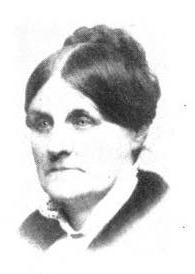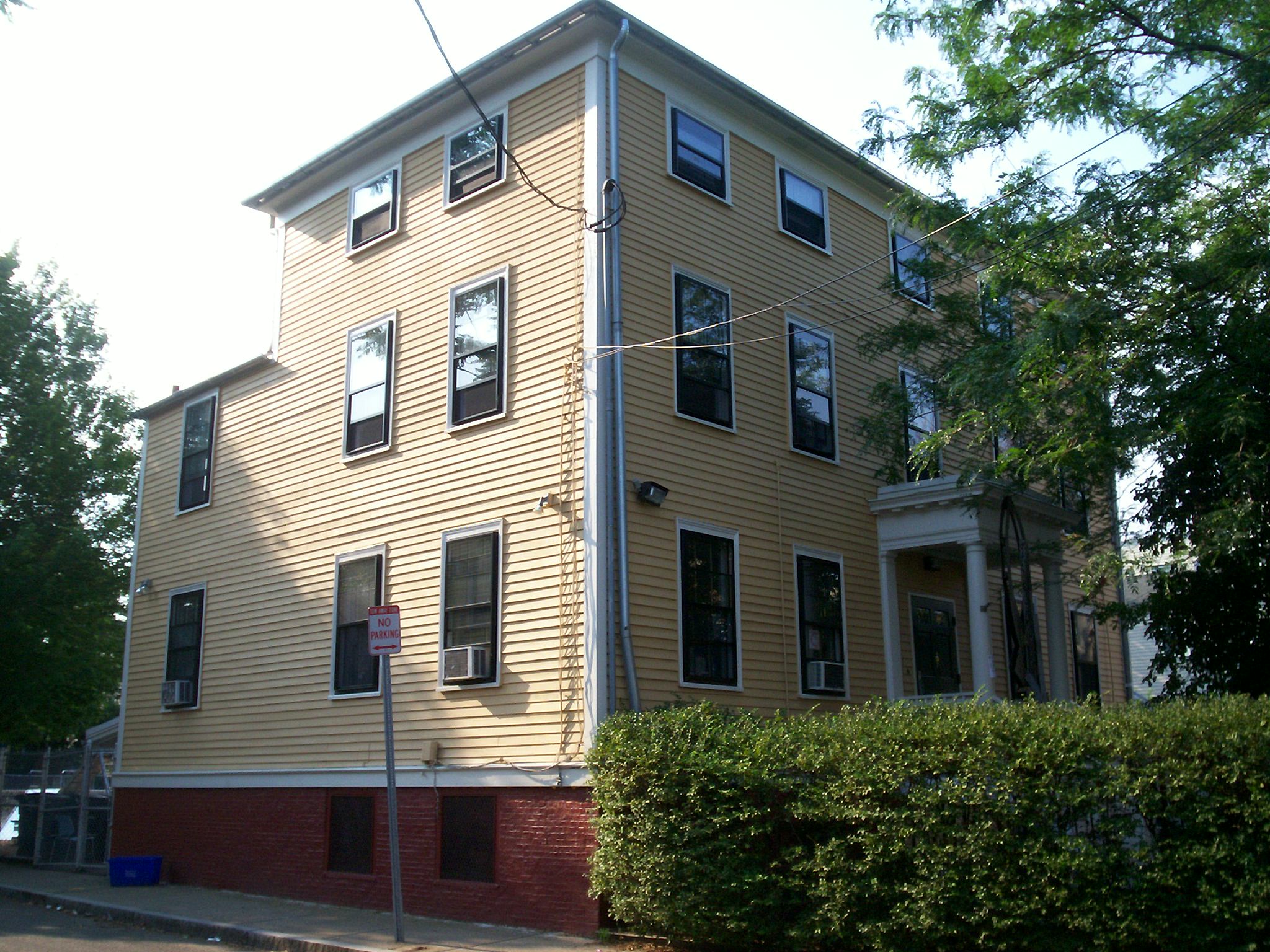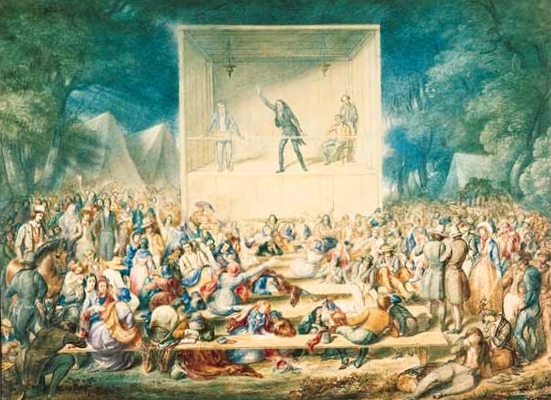|
Samuel Eells
Samuel Eells (1810–1842) was a 19th-Century American lawyer, philosopher, essayist and orator who founded the Alpha Delta Phi fraternity in 1832 at Hamilton College in Clinton, New York. Early life Eells was born in Westmoreland, New York, in the rural western part of the state, in 1810. He could trace his family back to early settlers of the Massachusetts Bay Colony, and his father was a Congregationalist missionary who worked amongst the Native Americans in Western New York. He was educated at home, probably primarily by his mother, before attending the nearby Clinton Academy and finally Hamilton College. Eells' constitution was feeble, and through all of his short life he struggled with tuberculosis and possibly other illnesses. Nevertheless, he was known amongst his friends and colleagues for his intense intellectual curiosity, drive, and "personal magnetism." Besides his praiseworthy writing and oration, he often undertook seemingly impossible projects; for example, b ... [...More Info...] [...Related Items...] OR: [Wikipedia] [Google] [Baidu] |
New England
New England is a region comprising six states in the Northeastern United States: Connecticut, Maine, Massachusetts, New Hampshire, Rhode Island, and Vermont. It is bordered by the state of New York to the west and by the Canadian provinces of New Brunswick to the northeast and Quebec to the north. The Atlantic Ocean is to the east and southeast, and Long Island Sound is to the southwest. Boston is New England's largest city, as well as the capital of Massachusetts. Greater Boston is the largest metropolitan area, with nearly a third of New England's population; this area includes Worcester, Massachusetts (the second-largest city in New England), Manchester, New Hampshire (the largest city in New Hampshire), and Providence, Rhode Island (the capital of and largest city in Rhode Island). In 1620, the Pilgrims, Puritan Separatists from England, established Plymouth Colony, the second successful English settlement in America, following the Jamestown Settlement in Virginia foun ... [...More Info...] [...Related Items...] OR: [Wikipedia] [Google] [Baidu] |
Amos Bronson Alcott
Amos Bronson Alcott (; November 29, 1799 – March 4, 1888) was an American teacher, writer, philosopher, and reformer. As an educator, Alcott pioneered new ways of interacting with young students, focusing on a conversational style, and avoided traditional punishment. He hoped to perfect the human spirit and, to that end, advocated a plant-based diet. He was also an abolitionist and an advocate for women's rights. Born in Wolcott, Connecticut in 1799, Alcott had only minimal formal schooling before attempting a career as a traveling salesman. Worried that the itinerant life might have a negative impact on his soul, he turned to teaching. His innovative methods, however, were controversial, and he rarely stayed in one place very long. His most well-known teaching position was at the Temple School in Boston. His experience there was turned into two books: ''Records of a School'' and ''Conversations with Children on the Gospels''. Alcott became friends with Ralph Waldo Emers ... [...More Info...] [...Related Items...] OR: [Wikipedia] [Google] [Baidu] |
Margaret Fuller
Sarah Margaret Fuller (May 23, 1810 – July 19, 1850), sometimes referred to as Margaret Fuller Ossoli, was an American journalist, editor, critic, translator, and women's rights advocate associated with the American transcendentalism movement. She was the first American female war correspondent and full-time book reviewer in journalism. Her ''book Woman in the Nineteenth Century'' is considered the first major feminist work in the United States. Born Sarah Margaret Fuller in Cambridge, Massachusetts, she was given a substantial early education by her father, Timothy Fuller, a lawyer who died in 1835 due to cholera. She later had more formal schooling and became a teacher before, in 1839, she began overseeing her Conversations series: classes for women meant to compensate for their lack of access to higher education. She became the first editor of the transcendentalist journal ''The Dial'' in 1840, which was the year her writing career started to succeed, before joining the st ... [...More Info...] [...Related Items...] OR: [Wikipedia] [Google] [Baidu] |
Ralph Waldo Emerson
Ralph Waldo Emerson (May 25, 1803April 27, 1882), who went by his middle name Waldo, was an American essayist, lecturer, philosopher, abolitionist, and poet who led the transcendentalist movement of the mid-19th century. He was seen as a champion of individualism and a prescient critic of the countervailing pressures of society, and his ideology was disseminated through dozens of published essays and more than 1,500 public lectures across the United States. Emerson gradually moved away from the religious and social beliefs of his contemporaries, formulating and expressing the philosophy of transcendentalism in his 1836 essay "Nature". Following this work, he gave a speech entitled "The American Scholar" in 1837, which Oliver Wendell Holmes Sr. considered to be America's "intellectual Declaration of Independence."Richardson, p. 263. Emerson wrote most of his important essays as lectures first and then revised them for print. His first two collections of essays, '' Essays: Firs ... [...More Info...] [...Related Items...] OR: [Wikipedia] [Google] [Baidu] |
Second Great Awakening
The Second Great Awakening was a Protestant religious revival during the early 19th century in the United States. The Second Great Awakening, which spread religion through revivals and emotional preaching, sparked a number of reform movements. Revivals were a key part of the movement and attracted hundreds of converts to new Protestant denominations. The Methodist Church used circuit riders to reach people in frontier locations. The Second Great Awakening led to a period of antebellum social reform and an emphasis on salvation by institutions. The outpouring of religious fervor and revival began in Kentucky and Tennessee in the 1790s and early 1800s among the Presbyterians, Methodists and Baptists. It led to the founding of several well known colleges, seminaries, and mission societies. Historians named the Second Great Awakening in the context of the First Great Awakening of the 1730s and 1750s and of the Third Great Awakening of the late 1850s to early 1900s. The First ... [...More Info...] [...Related Items...] OR: [Wikipedia] [Google] [Baidu] |
Transcendentalism
Transcendentalism is a philosophical movement that developed in the late 1820s and 1830s in New England. "Transcendentalism is an American literary, political, and philosophical movement of the early nineteenth century, centered around Ralph Waldo Emerson." A core belief is in the inherent goodness of people and nature, and while society and its institutions have corrupted the purity of the individual, people are at their best when truly "self-reliant" and independent. Transcendentalists saw divine experience inherent in the everyday, rather than believing in a distant heaven. Transcendentalists saw physical and spiritual phenomena as part of dynamic processes rather than discrete entities. Transcendentalism is one of the first philosophical currents that emerged in the United States;Coviello, Peter. "Transcendentalism" ''The Oxford Encyclopedia of American Literature''. Oxford University Press, 2004. ''Oxford Reference Online''. Web. 23 Oct. 2011 it is therefore a key early point ... [...More Info...] [...Related Items...] OR: [Wikipedia] [Google] [Baidu] |
Hegel
Georg Wilhelm Friedrich Hegel (; ; 27 August 1770 – 14 November 1831) was a German philosopher. He is one of the most important figures in German idealism and one of the founding figures of modern Western philosophy. His influence extends across the entire range of contemporary philosophical topics, from metaphysical issues in epistemology and ontology, to political philosophy, the philosophy of history, philosophy of art, philosophy of religion, and the history of philosophy. Born in 1770 in Stuttgart during the transitional period between the Enlightenment and the Romantic movement in the Germanic regions of Europe, Hegel lived through and was influenced by the French Revolution and the Napoleonic wars. His fame rests chiefly upon ''The Phenomenology of Spirit'', ''The Science of Logic'', and his lectures at the University of Berlin on topics from his ''Encyclopedia of the Philosophical Sciences''. Throughout his work, Hegel strove to address and correct the problema ... [...More Info...] [...Related Items...] OR: [Wikipedia] [Google] [Baidu] |
Age Of Enlightenment
The Age of Enlightenment or the Enlightenment; german: Aufklärung, "Enlightenment"; it, L'Illuminismo, "Enlightenment"; pl, Oświecenie, "Enlightenment"; pt, Iluminismo, "Enlightenment"; es, La Ilustración, "Enlightenment" was an intellectual and philosophical movement that dominated Europe in the 17th and 18th centuries with global influences and effects. The Enlightenment included a range of ideas centered on the value of human happiness, the pursuit of knowledge obtained by means of reason and the evidence of the senses, and ideals such as liberty, progress, toleration, fraternity, and constitutional government. The Enlightenment was preceded by the Scientific Revolution and the work of Francis Bacon, John Locke, and others. Some date the beginning of the Enlightenment to the publication of René Descartes' ''Discourse on the Method'' in 1637, featuring his famous dictum, ''Cogito, ergo sum'' ("I think, therefore I am"). Others cite the publication of Isaac Newto ... [...More Info...] [...Related Items...] OR: [Wikipedia] [Google] [Baidu] |
Protestantism
Protestantism is a branch of Christianity that follows the theological tenets of the Protestant Reformation, a movement that began seeking to reform the Catholic Church from within in the 16th century against what its followers perceived to be growing errors, abuses, and discrepancies within it. Protestantism emphasizes the Christian believer's justification by God in faith alone (') rather than by a combination of faith with good works as in Catholicism; the teaching that salvation comes by divine grace or "unmerited favor" only ('); the priesthood of all faithful believers in the Church; and the ''sola scriptura'' ("scripture alone") that posits the Bible as the sole infallible source of authority for Christian faith and practice. Most Protestants, with the exception of Anglo-Papalism, reject the Catholic doctrine of papal supremacy, but disagree among themselves regarding the number of sacraments, the real presence of Christ in the Eucharist, and matters of ecclesiast ... [...More Info...] [...Related Items...] OR: [Wikipedia] [Google] [Baidu] |
Abolitionism In The United States
In the United States, abolitionism, the movement that sought to end slavery in the country, was active from the late colonial era until the American Civil War, the end of which brought about the abolition of American slavery through the Thirteenth Amendment to the United States Constitution (ratified 1865). The anti-slavery movement originated during the Age of Enlightenment, focused on ending the trans-Atlantic slave trade. In Colonial America, a few German Quakers issued the 1688 Germantown Quaker Petition Against Slavery, which marks the beginning of the American abolitionist movement. Before the Revolutionary War, evangelical colonists were the primary advocates for the opposition to slavery and the slave trade, doing so on humanitarian grounds. James Oglethorpe, the founder of the colony of Georgia, originally tried to prohibit slavery upon its founding, a decision that was eventually reversed. During the Revolutionary era, all states abolished the international sla ... [...More Info...] [...Related Items...] OR: [Wikipedia] [Google] [Baidu] |
Salmon P
Salmon () is the common name for several commercially important species of euryhaline ray-finned fish from the family Salmonidae, which are native to tributaries of the North Atlantic (genus ''Salmo'') and North Pacific (genus '' Oncorhynchus'') basin. Other closely related fish in the same family include trout, char, grayling, whitefish, lenok and taimen. Salmon are typically anadromous: they hatch in the gravel beds of shallow fresh water streams, migrate to the ocean as adults and live like sea fish, then return to fresh water to reproduce. However, populations of several species are restricted to fresh water throughout their lives. Folklore has it that the fish return to the exact spot where they hatched to spawn, and tracking studies have shown this to be mostly true. A portion of a returning salmon run may stray and spawn in different freshwater systems; the percent of straying depends on the species of salmon. Homing behavior has been shown to depend on ... [...More Info...] [...Related Items...] OR: [Wikipedia] [Google] [Baidu] |










